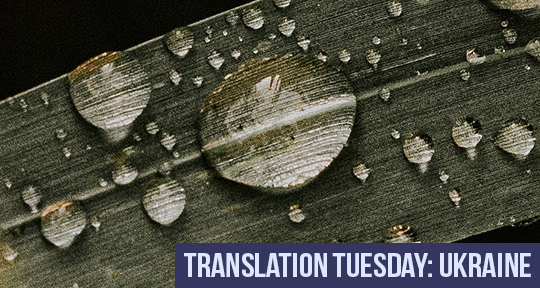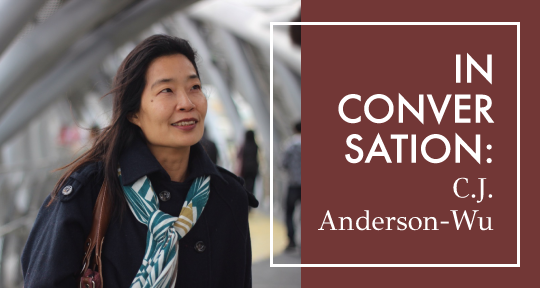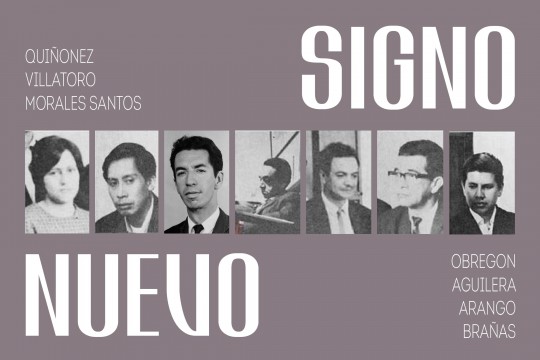This Translation Tuesday, the unnerving poetry of Ukraine’s greatest post-war poet Vasyl Stus furnishes a haunting glimpse into the suffocating atmosphere of Ukraine in the Soviet era–all too resonant as Ukrainians once again struggle to survive in wartime. Hear from translators Bohdan Tokarsky and Nina Murray on Joyful Cemetery, the collection of poetry from which “Here’s the Sun for You” is taken, written two years before Stus’s arrest for dissidence and subsequent death in a Soviet forced labor camp in 1985: “Stus’s most politically radical volume, it [Joyful Cemetery] exposes, with a Kafkaesque subversion of logic, the grotesque nature of the Soviet totalitarian state. The running theme in the entire collection is the struggle, both as a human and as a Ukrainian dissident, to stay alive – free and authentic – in the kingdom of the living dead, which is rife with lies, artificiality, violence, and conformism.”
Here’s the sun for you, said the man with the cockade on his cap
and pulled out a nickel that looked like a tiny sun.
And here’s the road for you: he made a few steps to the right
and drew the edge of it with the toe of his boot.
To help you feel cheerful—turn on these tape-players and radios,
pick up these rattles
and bang them, bang them against your heads.
To avoid getting thirsty or hungry—
listen to the lectures and watch these popular films
about how happily you will all live
once you make it to the hereafter.
To avoid the rain dripping
down your necks—
remember:
every downpour
eventually ends
even the flood
from the windows
of heaven.
When you are cold—start singing these songs.
He handed out a sheaf of stamped lyrics
(approved by the censors for singing
in groups of two, three,
and even more voices).
When you feel that you need to rest,
learn to play this exciting game about war:
imagine the enemy all around you,
they have come to rob you of your blissful existence.
In a word, shoot at them, throw yourselves
onto machine gun nests
and fall under tanks.
Just don’t start running, he added.
Our kind benefactor!
Who would want to run from this paradise?
we cried in unison
as we struggled to see into the eyes
under the beak of the cap:
they looked like two drops of quicksilver.
Translated from the Ukrainian by Bohdan Tokarsky and Nina Murray.
Vasyl Stus (1938-1985) was a Ukrainian poet, prose writer, essayist and prolific translator. Widely recognized to be Ukraine’s greatest post-war poet, he has been celebrated for his intellectual, philosophical and psychological works engaged in radical self-exploration. Stus was also an uncompromising Soviet dissident. He grew up in Donetsk where he struggled against rampant Russification and later moved to Kyiv where his doctoral (and official poetic) work was cut short because of his public protest against the mass arrests of Soviet Ukrainian intellectuals. For his aesthetically insurgent poetry, as well as his indefatigable fight for human and national rights, he was arrested in 1972 and spent the rest of his life in Soviet prison and the Gulag. He died in 1985 in the Perm-36 labor camp. Despite constant oppression, Stus produced several poetry collections, including Зимові дерева (Winter Trees, 1970), Веселий цвинтар (Joyful Cemetery, 1970) and his magnum opus volume Палімпсести (Palimpsests, 1980), which he wrote, against all odds, in the Gulag.
Bohdan Tokarsky is a literary scholar and translator specializing in Ukraine’s twentieth-century and contemporary literature, currently based at the University of Potsdam (Germany). He completed his PhD on the works of Vasyl Stus at the University of Cambridge, where he taught as Affiliated Lecturer in Ukrainian Studies between 2018-2020. His essays and translations have appeared in literary magazines such as Los Angeles Review of Books and Apofenie. He is the author of The Un/Executed Renaissance: Ukrainian Soviet Modernism and Its Legacies (Berlin: FTS, 2021) and co-author of the verbatim play The Summer Before Everything (2016) on revolution and war in Ukraine. He is currently working on the first English-language monograph on Stus’s poetry.
Nina Murray is a Ukrainian-American poet and translator. She is the author of the poetry collection Alcestis in the Underworld (Circling Rivers Press, 2019) and several chapbooks. Her award-winning translations include Oksana Zabuzhko’s Museum of Abandoned Secrets, and Oksana Lutsyshyna’s Ivan and Phoebe (forthcoming from Deep Vellum). Her translation of Lesia Ukrainka’s Cassandra was performed at the Omnibus Theatre in London in 2022.
***
Read more from Translation Tuesdays on the Asymptote blog:






